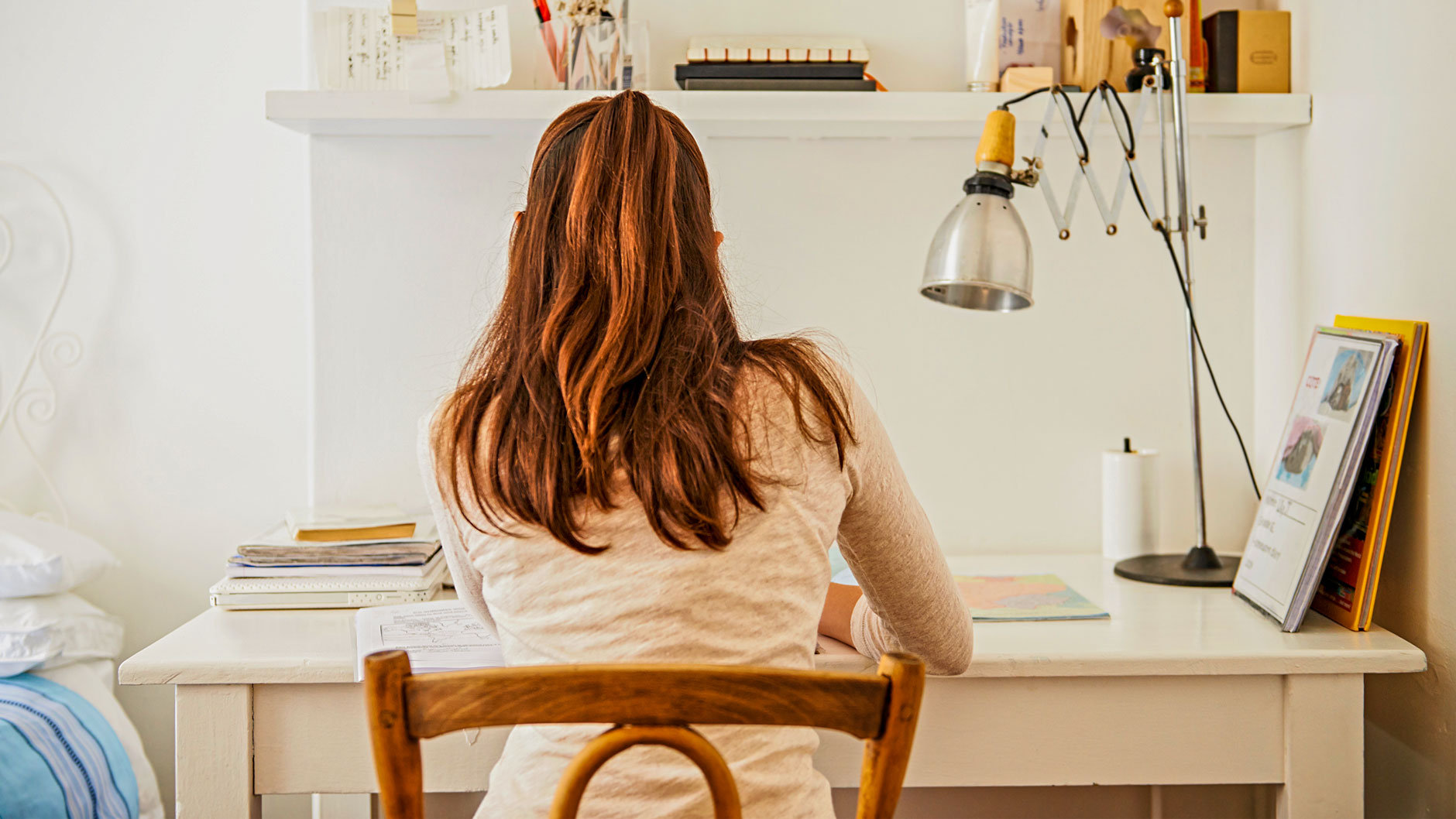The writer Virginia Woolf famously called for “a room of one’s own”. She was specifically advocating for private space for women to write, but the idea of having a special, dedicated room for learning is equally appealing to high school students.
A Pinterest-worthy study with the perfect layout and inspiring view is obviously what we all hope for, but then again we don’t all live on a lake or own velvet chairs. Establishing an environment that’s conducive to learning is nonetheless important so here are some tips that will help you create an appealing and productive study space.
Make it comfortable, but not too comfortable
While you want an environment that you enjoy spending time in, it should be relatively free of your favourite distractions. This is not the space for your big screen, xbox, or favourite novels. You want it to be inviting but not too inviting. The focus needs to be on creating a space where you can comfortably hang out for long periods, even if you’re doing something you don’t always love.
Find the right space for you
Ask yourself whether you work best on your own or with some activity around you. If you’re a lone studier, you’ll need to carve out some private space in your house. If you’re lucky enough to have your own bedroom, dedicate a corner to your desk and shelf. If not, try to create a learning space that’s isolated from the rest of your family. Maybe you can rig up some curtains to block off an annex in a living room. This will muffle sound and also indicate to your family not to disturb you.
If, on the other hand, you enjoy being surrounded by others and find it easy to concentrate in public, you might find that studying in a library or even a café is a good move. Be careful that you’re not just attracted to the social component of studying in this way and the proximity of your friends. It may be that you can study some subjects with people around, while others need more solitude. There’s nothing wrong with varying your learning environment, and spending a bit of time out in the world is a great way to alleviate the inevitable study slump that comes during long periods of prep.
Sit, stand, crouch, lounge
Different people work sprawled on their bed, lying on the floor, sitting in an armchair or flopped across a beanbag. Depending on what you’re learning, pacing around your room might even work. If you prefer a traditional desk situation, make sure your chair is the right height for your desk and computer keyboard to avoid back pain. It’s good to have a couple of options – a comfortable desk and also a pile of cushions on the floor so you can vary your sitting position and mix it up a bit.
Temperature, air, light
Is your study space too hot or cold? You want to be comfortable, but if you’re in an overheated room you might find it hard to stay awake. Alternatively, you may think that a cold room will keep you alert, but remember, you want to create a space that you enjoy inhabiting. Fresh air is important, as is enough light to see what you’re doing. Just remember to strike a balance.
It’s worth investing in (or stealing from another part of the house) a strong lamp that you can angle to give you the greatest flexibility. The position of your computer screen is also something to consider. A window behind or opposite your screen may create optical problems.
Now, decorate away!
It can be helpful to have a few nice things around you to make yourself feel positive. You don’t want to clutter your desk, but you have room for a couple of nice photos of your friends and family. Consider putting up some inspirational images or quotes to remind you why you’re studying. A lot of students find that images of paintings that make them feel calm also create a nurturing environment.
If you study in your bedroom, chances are good that it’s not in an absolutely pristine condition. We’re not judging! After all, excessive tidying can be a form of dangerous procrastination. But you will be seriously distracted by a long drawn out battle with that family of rats that sets up home under your bed if you don’t do a bit of clearing.
